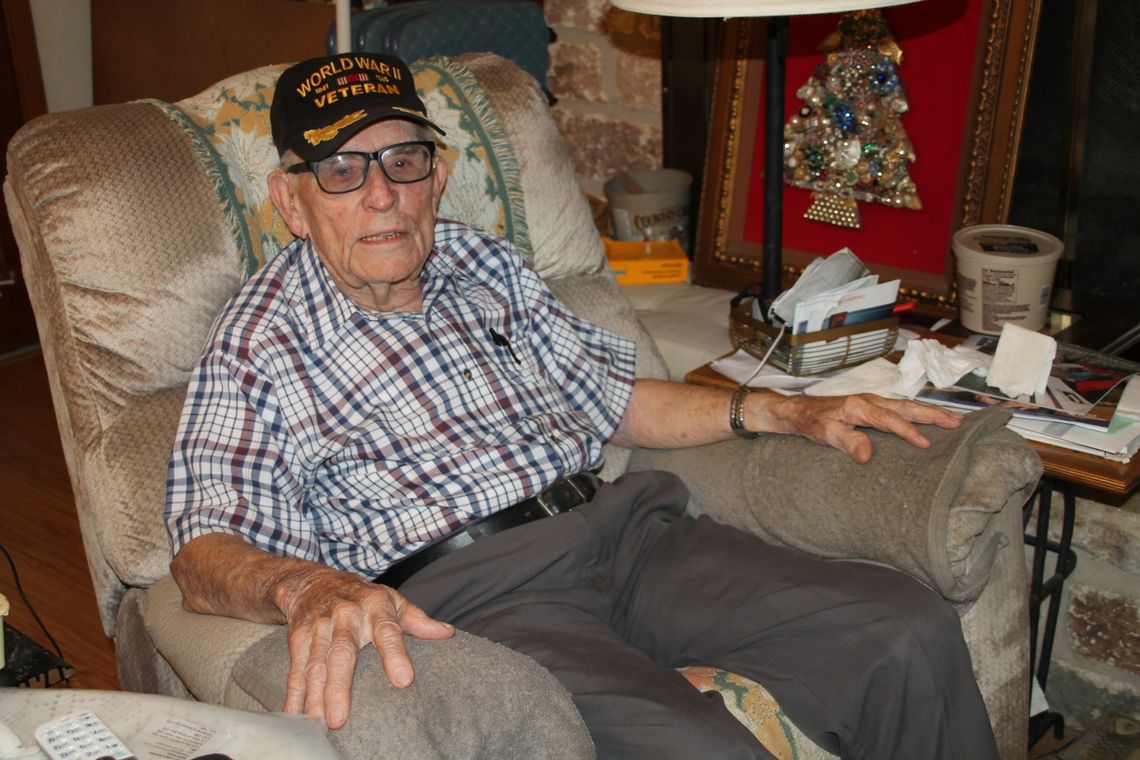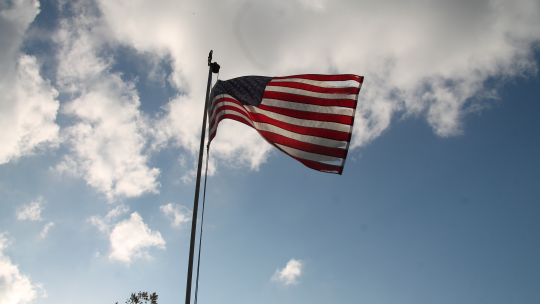In his 98 years, World War II and Korean War veteran Archie Moczygemba has had some close calls and lived to tell the tales.
Moczygemba was born July 4, 1924, in Kosciusko, the son of first-generation Polish Americans. He said he grew up speaking Polish and Spanish as his first languages in the town south of San Antonio.
On the eve of Veterans Day, Nov. 11, Moczygemba reminisced about his military career, which began when he enlisted in the Marines in November 1942, right on the heels of the Great Depression.
“In the war, the hardship was more being separated from your family,” said Moczygemba, who has lived in Taylor since 1998. “You led a very spartan life because supplies were not there, but you have to figure where my generation came from: When we left home, we were right smack dab in the middle of the Depression, and the Depression had just started to slide over, so anything that we got was a bonus. I can’t say that I would take my wartime experience as a hardship because we were fed, and we had clothes.”
At age 21, as a member of the 2nd Marine Division, Moczygemba was part of the occupation force assigned to Nagasaki, Japan, in September 1945, a little less than a month after the U.S. dropped the atomic bomb and flattened much of the city.
One memory that stays with Moczygemba was seeing two intact ceramic flowerpots out in front of what was once a residential building.
“It was just utter destruction. Moczygemba recalled. “I like to say that I walked through the ashes of roughly 60,000 people.”
Moczygemba said he has had plenty of both good and bad wartime experiences, but he takes everything in stride.
“As a whole I am one of the very fortunate ones,” he said. “I have had some close escapes, but I have come out of it, but all the glory and the honor that comes from serving in the war is for those that made the final sacrifice. Those that survived are living on their glory, not ours.”
Moczygemba spent seven years in the Marines, being discharged as a corporal, and then another 15 in the Army where he ended his career as master sergeant.
“I was in Korea twice. I was there during the war, but I didn’t spend much time then because we only held a little section of Korea,” Moczygemba recalled. “I didn’t stay there but five months then, and then in 1959 I spent a year there, and I got to explore a good bit.”
Nonetheless, while living there, this “meat and potatoes” kind of a guy had only one dish he liked to eat.
“The only food that I would eat that the Koreans served was hard-boiled eggs,” Moczygemba said with a chuckle.
A memory for the veteran that elicits another smile occurred when he was stationed at Fort Hood. His father, a World War I veteran, came for a visit; Moczygemba said his dad always wanted to ride in a tank.
Moczygemba admitted recently to a news station that he gave his dad and another relative an impromptu tour of the post in a tank. Beers may have been involved during the escapade, the veteran said.
“That has gotten me a lot of publicity,” Moczygemba said. “I am sure the statute of limitations is over on that one. I have been known to do a few stupid things in my life. Two individuals with me were my father and my brother-in-law, and they were very surprised at what the capabilities of a tank were because I put it through its paces.”
Another opportunity for publicity came when Moczygemba was honored last September, along with 40 other veterans of foreign wars, through Honor Flight Austin, a nonprofit that provides Texas-area World War II, Korean and Vietnam war veterans with an all-expenses-paid trip to Washington, D.C., to visit memorials honoring the armed forces.
“I was the lead dog on the honor flight because I was the oldest and I was also the only veteran there who had served in two branches of the service, so I was the lead person in everything,” Moczygemba said.
The veteran said he had the opportunity to take part in a wreath-laying ceremony at the Tomb of the Unknown Soldier in Arlington National Cemetery.
“Even leaving the airport, I was in the lead wheelchair,” Moczygemba added.
Though he is not as busy as he once was, Moczygemba still considers himself to be one of the luckiest people alive.
“Still today my attitude is there is something beyond the horizon that I still have not seen,” Moczygemba said. “I pulled a travel trailer for almost 30 years. I visited all the lower 48 states, I visited three provinces of Canada. Several of the places, I visited a number of times because they were very interesting to me. I still have the wanderlust. If I was capable of it, I would still be out there looking at something.”









